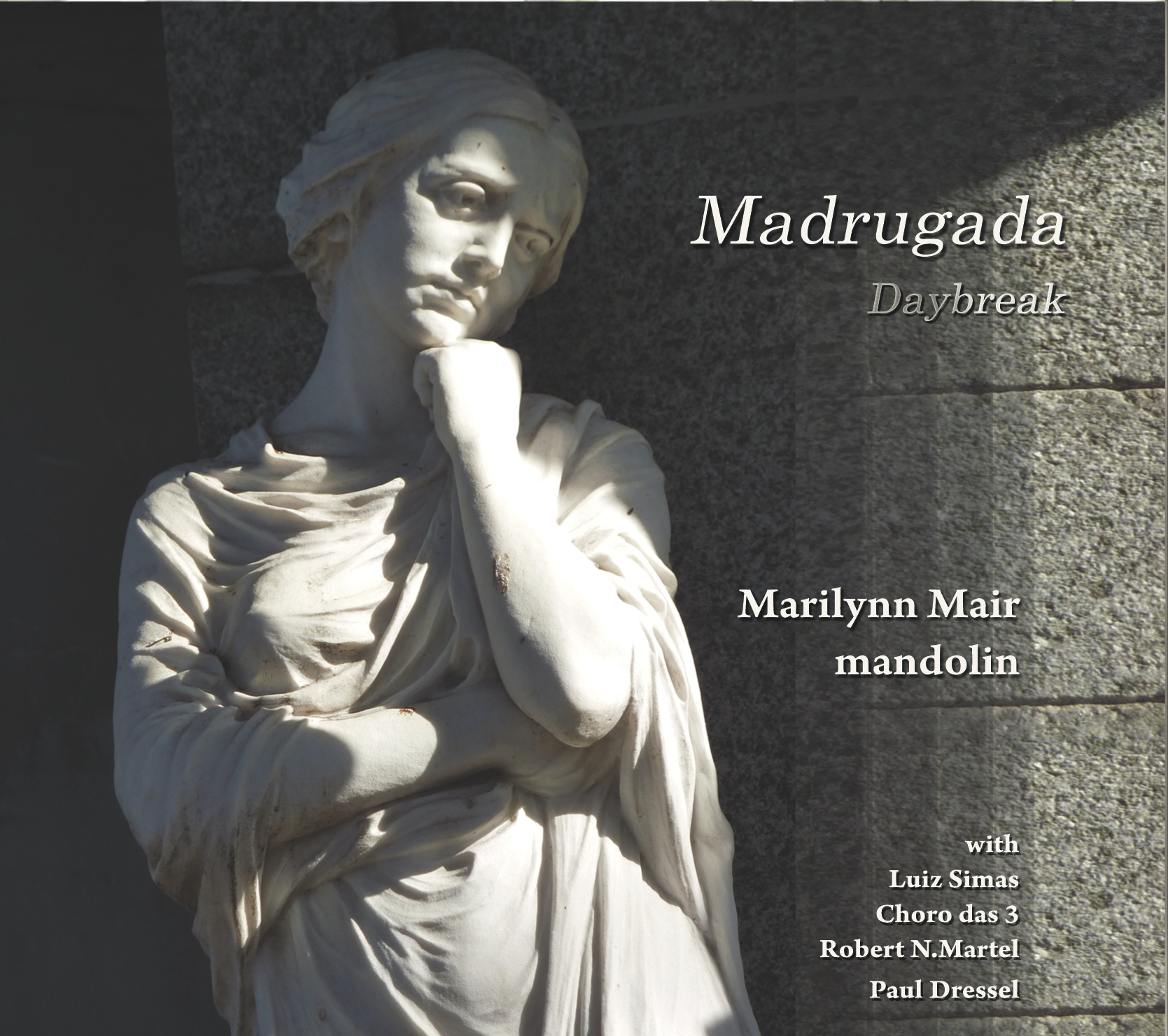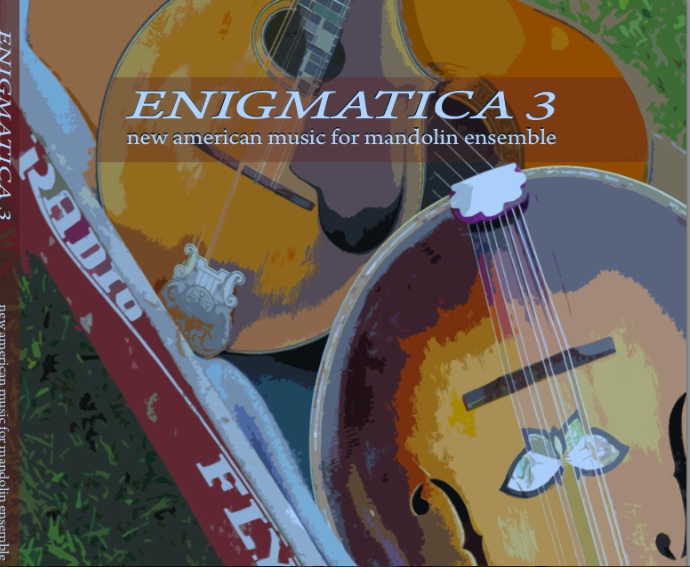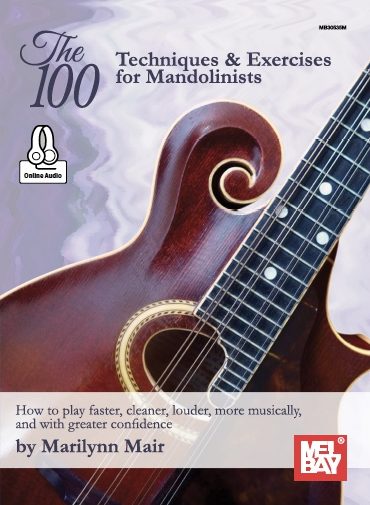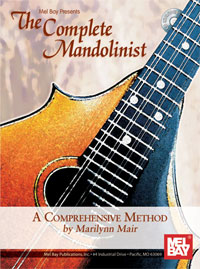“If you have 15 volumes to talk about all of Brazilian popular music, you can be sure that it is not enough. But, if you have space for just one word, write it down quickly: Pixinguinha.”
– Ary Vasconcellos, Brazilian music critic and historian.
This article was first published in Mandolin Quarterly, 2004, Vol. 9 Nr. 2.
Alfredo da Rocha Vianna Jr. (1897-1973) is best known by his nickname “Pixinguinha,” as the composer who brought chôro to its peak in Brazil and introduced it to popular acclaim in Europe. He helped begin samba, explored jazz and ragtime – discovered while performing in Paris – , and added saxophone and brass instruments to the choro ensemble. He orchestrated Carmen Miranda’s hit recordings in the 1930’s, popularizing Brazilian music in the United States, and added sophisticated harmony and counterpoint to choro in his compositions and through improvisation in his recordings and performances.
As a black performer and bandleader, he overcame racial discrimination to define a nationalistic musical style that has come to represent all of Brazil. A beloved personality as well as a brilliant musician, Pixinguinha’s influence on the history of choro is unmatched. His work defined Brazilian popular music through the early 20th century, and his compositions continue to be held in highest esteem throughout the world today.
Pixinguinha was born into Rio de Janeiro’s chôro tradition. His father, a telegraph operator and amateur flutist, hosted frequent “roda de chôro” at their home, and as a child Pixinguinha learned to play cavaquinho (a small 4-string guitar) from his brother and flute from his father. He later studied with flutist Irineu de Almeida, and was performing professionally and recording by age 14. Pixinguinha’s unusual nickname came from a contraction of two words – “Pizindim,’ meaning “good boy” and “bexiguinha,” meaning “pockmarked,” a reference to his smallpox scars, combined with the affectionate Brazilian diminutive ending, “-inha”. In 1911, Pixinguinha wrote his first choro, “Lata de leite,” (Can of Milk), about musicians returning home in the early morning and stopping to drink the milk left on doorsteps by the milkman.As a teenager, Pixinguinha played choro with local bands in clubs and bars, and helped direct larger orchestras for Carnaval. He also recorded and probably co-wrote in 1916, with his friend and lifelong musicial collaborator, Donga, “Pelo Telofone,” the earliest song recognized as beginning the new style of samba.
In 1919, Pixinguinha formed one of the most famous chôro groups of all time, “Os Oito Batutas” (The 8 Hotshots). The group initially included flute, two guitars, 7-string guitar (used for the bass lines), bandolim (the Brazilian mandolin), bandola (an alto bandolim), cavaquinho, pandeiro (a tambourine-like hand drum) and other percussion. The band broke previous racial barriers when they were hired to play before shows in the lobby of the prestigious Cinema Palais in Rio, where Ernesto Nazareth, choro’s founding father, was one of their biggest fans. “Os Oito Batutas” for the first time replaced the standard string orchestra playing European music, with a group of virtuoso performers playing Brazilian popular music, and their pre-show performances were soon a bigger draw than the shows they preceded, with people paying admission just to hear them play.
The group was in high demand, their popularity fueled by a growing sense of nationalism in Brazil, and they began performing in cities throughout the country. In 1922, they were sent to Paris on a tour designed to showcase new developments in the Brazilian arts. There was some objection in the Brazilian press to a group of black musicians being selected to represent the country in Europe, but “Os Oito Batutas” and their music were a huge success with European audiences. While in Paris, Pixinguinha, impressed by American jazz and ragtime bands he heard there, began adding saxophone and other brass instruments to his choro band. A photograph from the period of the “Jazz Band Os Batutas” shows an instrumentation of 2 saxophones (one played by Pixinguinha), 2 trumpets, trombone, piano, banjo, and drum set – quite a change in sound!
In the 1920’s Pixinguinha worked as an arranger and conductor, using his small ensemble style as a template for larger orchestrations of Brazilian popular music. He worked with most of the famous samba singers of the day, including Carmen Miranda and Noel Rosa, and greatly influenced the sound of Brazilian music being developed and exported by the growing Brazilian recording industry. He also recorded his own compositions, and in 1932 formed the “Grupo da Guarda Velha ” (Old Guard), a deliberately nationalistic group opposed to the growing influence of American jazz in Brazil, arguably a trend that he himself had started.
Pixinguinha continued to work in the recording industry through the 1940’s, and, reportedly because he was having trouble with his flute embouchure, switched to playing saxophone exclusively. He combined forces with Benidito Lacerda, flutist and bandleader, in a very successful venture that resulted in many new recordings highlighting Pixinguinha’s brilliantly improvised contrapuntal saxophone lines. Pixinguinha also wrote some of his most famous choro in collaboration with Lacerda, including “Chorei,” “Descendo a serra,” “Ingênuo,” and “Um a zero”. He briefly disappeared from the musical spotlight in the early 1950’s, but returned in 1954 and 1955 for the two “Festivals da Velha Guarda” (Festivals of the Old Guard) that featured the best musicians of his generation.
Pixinguinha wrote choro throughout his long life, and maintained its unique nationalistic character in his compositions, avoiding Americanization or modernization of the form, while expanding its harmonic complexity. His choro show remarkable variety, and many have become standards of the repertoire today. He was chôro’s defining voice during the period of its greatest commercial success, and his music continues to be universally beloved in Brazil. I’ve included a list of some of his most famous choro at the end of this article. The best current source for Pixinguinha’s music is the excellent book, “O Melhor de Pixinguinha,” a collection of 70+ tunes in lead-sheet form, published by Irmaos Vitale in Brazil, and readily available in the USA.
The Pixinguinha composition I’ve chosen for this issue of MQ is “Vou Vivendo,” one of his most popular works, co-written with Benedito Lacerda in 1945. Paulo Sa and I are coordinating our musical examples in this issue to give MQ readers a better idea of how choro performance continues to develop and change in Brazil today. My version of the tune is Pixinguinha’s standard written one, while Paulo’s version incorporates some of the performance embellishments and improvisations that he uses to personalizes his performances with the Rio Trio. We hope you’ll enjoy discovering their differences.
Note: While Vou Vivendo was licensed by MQ, it was written in 1947, so it is still in copyright & I will not publishe it here. But it is very easy to find Pixinguinha’s music.
Pixinguinha’s Choro: An alphabetical list of Pixinguinha’s compositions follows this article, taken from the website of International Dictionary of Black Composers, http://www.cbmr.org/pubs/pixinguinha.htm.
Pixinguinha’s Compositions, A Selected Listing
“Acerte o passo” (choro). 1951. Co-composer, Benedito Lacerda.
“Agüenta, seu Fulgêncio” (choro). 1930.
“Ai, eu queria” (samba). 1927. Co-composer, Vidraça.
“Ainda existe” (choro). 1927.
“Ainda me recordo” (choro). 1932. Co-composer, Benedito Lacerda.
“Amigo do povo” (choro). 1928.
“Assim é que é” (polca). 1957.
“Os Batutas.” 1957. Co-composer, Duque.
“Baia” (samba). Recorded: Concord Picante CJP-389-C.
“Benguelê” (lundu africano). 1946.
“Bianca” (valsa). 1946. Co-composer, Andreoni.
“Buquê de flores” (marcha-rancho). 1968. Co-composer, W. Falcão.
“Cafezal em flor” (canção). 1930. Co-composer, Eugênio Fonseca.
“Caixa alta.” Recorded: Discos Marcus Pereira CDM-0031.
“Carinhoso” (samba-choro). 1916–17.
“Carnaval tá aí” (marcha). 1931. Co-composer, Josué de Barros.
“Casado na orgia” (samba). 1933. Co-composer, João de Baiana.
“Casamento do coronel Cristino” (polca-choro). 1930.
“Um caso perdido” (samba). 1930.
“Céu do Brasil” (marcha-rancho). 1940. Co-composer, Gomes Filho.
“Chegui” (choro). 1946. Co-composer, Benedito Lacerda.
“Chorando sempre.” Recorded: Camargas RC 001.
“Chorei” (choro). 1942. Co-composer, Benedito Lacerda.
“Um chorinho no parque São Jorge” (choro). 1958. Co-composer, Salgado Filho.
“Os Cinco companheiros” (choro). 1942.
“Cochichando” (choro). 1944. Co-composers, João de Barro, Alberto Ribeiro.
“Conversa de crioulo” (samba de partido-alto). 1932. Co-composers, Donga, João de Baiana.
“Cuidado, colega” (choro). 1948. Co-composer, Benedito Lacerda.
“Dança dos ursos” (samba). 1930.
“Dando topada” (maxixe-polca). 1957.
“Descendo a serra” (choro). 1947. Co-composer, Benedito Lacerda.
“Desencanto.” Recorded: Discos Marcus Pereira CDM-0031.
“Desprezado” (maxixe). 1929.
“Devagar e sempre” (choro). 1949. Co-composer, Benedito Lacerda.
“Didi.” Recorded: Concord Picante CJP-389C.
“Dininha” (valsa). 1948. Co-composer, Benedito Lacerda.
“Diplomata.” Recorded: Discos Marcus Pereira CDM-0031.
“Displicente” (choro). 1948. Recorded: RCA V100.053; RCA Camden CALB 5041.
“Dominante” (tango). 1948.
“Ele e eu” (polca-choro). 1947. Co-composer, Benedito Lacerda.
“Encantadora” (valsa). 1928.
“Escorregando.” Recorded: Concord Picante CJP-389-C.
“Estou voltando” (choro). 1932.
“Eu sou gozado assim” (samba). 1931.
“Fala baixinho” (choro). 1964. Co-composer, Hermínio Belo de Carvalho.
“Festa de branco” (samba). 1927. Co-composer, João de Baiano.
“Uma Festa de Nanã” (lundu africano). 1941. Co-composer, Gastão Viana.
“Foi muamba” (samba carnavalesco). 1930. Co-composer, Indio.
“Fonte abandonada” (canção). 1930. Co-composer, Indio.
“Fraternidad” (tango). 1928.
“Gavião calçudo” (samba). 1929.
“Gloria” (valsa). 1934.
“Guiomar” (marcha). 1929. Co-composer, Boão da Baiano.
“Ha! hu! lá! ho!” (samba de partido-alto). 1931. Co-composers, Donga, João da Baiana.
“Harmonia das flores” (choro). 1964. Co-composer, Hermínio Belo de Carvalho.
“Os homens implica comigo” (samba). 1931. Co-composer, Carmen Miranda.
“Infantíl” (choro). 1927.
“Ingênuo” (choro). 1947. Co-composer, Benedito Lacerda.
“Inspiração.” Recorded: Discos Marcus Pereira CDM-0031.
“Iolanda” (valsa). 1935.
“Isso é que é viver” (choro). 1964. Co-composer, Hermínio Belo de Carvalho.
“Isto não se faz” (choro). 1964. Co-composer, Hermínio Belo de Carvalho.
“Já andei” (batucada). 1932. Co-composers, Donga, João da Baiana.
“Já te digo” (samba). 1919. Co-composer, Otávio Viana. Recorded: Ubatuqui UBCD-20003.
“Jardim de Ilara” (canção). 1919. Co-composer, C. M. Costa.
“Knock-out, Fox-trot.” 1919.
“Lá-ré” (polca). 1923–25.
“Lamentos” (choro). 1928.
“Lata de leite.” 1911.
“Leonor” (samba). 1930.
“Levante, meu nego” (maxixe). 1932.
“Love Is Like This.” Santa Barbara, Calif.: Ipanema Music, n.d. Co-composers, Gilberto Ray, Berrios Pedro, Braga Carlos.
“Lusitânia” (canção). 1932.
“Mais quinze dias” (choro). 1964.
“Mama, meu netinho” (marcha). 1941. Co-composer, Jararaca.
“Mamãe Isabé” (macumba). 1933. Co-composer, João da Baiana.
“Marilene” (choro). 1951. Co-composer, Benedito Lacerda.
“Marreco quer água” (polca). 1959.
“Meu coração não te quer” (choro). 1941. Co-composer, E. Almeida.
“Minha cigana” (marcha). 1948. Co-composer, Benedito Lacerda.
“Mis tristezas solo lloro” (tango). 1928.
“Modinha brasileira.” Recorded: Camargas RC 001.
“Mulata baiana” (samba-jongo). 1938. Co-composer, Gastão Viana.
“Mulher boémia” (samba). 1928.
“Mundo melhor.” 1967. Co-composer, Vinícius de Morais.
“Não gostei dos teus olhos” (samba). 1933. Co-composer, João da Baiana.
“Não me digas.” Recorded: Discos Marcus Pereira CDM-0031.
“Não posso mais” (choro). 1953.
“Naquêle tempo” (choro). 1934.
“Naquêle tempo” (choro). 1947. Co-composer, Benedito Lacerda.
“Nasci para domador” (samba). 1933. Co-composer, Valfrido Silva.
“No elevador” (choro). 1964.
“Noite e dia” (choro-canção). 1968. Co-composer, W. Falcão.
“Nostalgia ao luar” (valsa). 1942.
“Número um” (choro). 1927.
“O Gato e o canario” (polca). 1949. Co-composer, Benedito Lacerda.
“Os Oito Batutas” (choro). 1948. Co-composer, Benedito Lacerda.
.“O meu conselho” (samba). 1931.
“O Teu cabelo não nega.” Recorded: Ubatuqui UBCD-20003.
“Onde foi Isabé” (embolada). 1929.
“Oscarina” (valsa). 1934.
“Paciente” (choro). 1959.
“Pagão” (choro). 1947. Co-composer, Benedito Lacerda.
“Página de dor” (valsa). 1938. Co-composer, Indio.
“Papagaio sabido” (samba). 1930. Co-composer, C. Araújo.
“Patrão, prenda seu gado” (chula raiada). 1931. Co-composers, Donga, João da Baiana.
“Pé de mulata” (samba). 1928.
“Pelo Telefone” (piano). 1916. Co-composer, Ernesto Joaquim Maria dos Santos.
“Poema de raça” (samba). 1955. Co-composers, Z. Reis, Benedito Lacerda.
“Poética” (polca). 1955.
“A pombinha” (samba). 1919. Co-composer, Donga.
“Por você fiz o que pude” (samba). 1935. Co-composer, João da Baiano.
“Pretenciosa” (polca). 1928. San Francisco: Guitar Solo, 1987.
“Proezas de Sólon” (choro). 1947. Co-composer, Benedito Lacerda.
“Promessa” (samba). 1928.
“Que perigo” (choro). 1955.
“Que queré” (macumba). 1932. Co-composers, João de Baiana, Donga.
“Quem foi que disse” (samba). 1928.
“Rafael.” Recorded: Ubatuqui UBCD-20003.
“Raiado” (samba). 1931. Co-composer, Gastão Viana.
“Rancho abandonado” (canção). 1930. Co-composer, Indio.
“Recordando” (choro). 1935. Recorded: Discos Marcus Pereira CDM-0031.
“Retratos.” Recorded: Concord Picante CJP-389-C.
“Rosa” (valsa- canção). 1917 or 1918.
“Salto de grilo.” Recorded: Discos Marcus Pereira CDM-0031.
“Samba de fato” (samba de partido-alto). 1932. Co-composer, João da Baiano.
“Samba de nego.” 1927.
“Samba do urubú” (variações sobre urubú). 1927.
“Samba fúnebre” (samba). 1972. Co-composer, Vinícius de Morais.
“Samba na areia” (samba). 1930.
“Sampa” (samba). Recorded: Caju Music MK-CCD 4002.
“Sapequinha” (polca-choro). 1926.
“Sarravulho.” Recorded: Discos Marcus Pereira CDM-0031.
“Saudade do cavaquinho” (choro). 1946. Co-composer, Muraro.
“Sedutor” (choro). 1949. Co-composer, Benedito Lacerda.
“Segura ele” (choro). 1946. Co-composer, Benedito Lacerda.
“Seresteiro” (choro). 1949.
“Seu Lourenço no vinho” (choro). 1948. Co-composer, Benedito Lacerda.
“Sofres porque queres” (choro). 1917 or 1918.
“Solidão” (choro). 1964.
“Soluços” (choro). 1950. Co-composer, Benedito Lacerda.
“Sonho da Índia” (fox). 1950. Co-composer, N. N., Duque.
“Sonhos.” Recorded: Camargos RC 001; Discos Marcus Pereira CDM-0031.
“Stella” (fox-blue). 1950. Co-composers, De Casto, Sousa.
“Tapa buraco.” Recorded: FUNARTE PA 82002.
“Te encontrei.” Recorded: Discos Marcus Pereira CDM-0031.
“Teu aniversário” (choro). 1950.
“Teus ciúmes” (samba). 1928.
“Triangular” (choro). 1942.
“Tristezas não pagam dívidas” (valsa). 1942.
“Um a zero” (choro). 1946. Co-composer, Benedito Lacerda.
“Um chorinho para Elizeth.” Recorded: Discos Marcus Pereira CDM-0031.
“Urubatã” (choro). 1929. Co-composer, Benedito Lacerda.
“Urubú” (samba). 1929.
“Vagando” (choro). 1951. Co-composer, Benedito Lacerda.
“Vamos brincar” (choro). 1927.
“Variações sobre o urubú e o gavião” (choro). 1945.
“Vem cá! Não vou!” (choro). 1929.
“Vi o pombo gemê” (batucada). 1932. Co-composers, Donga, João da Baiana.
“A Vida é um buraco” (choro). 1930.
“Você é bamba” (samba). 1935. Co-composer, João da Baiano.
“Você não deve beber” (samba). 1940. Co-composer, Manuel Ribeiro.
“Vou pra casa” (choro). 1964.
“Vou vivendo” (choro). 1945. San Francisco: Guitar Solo, 1987. Co-composer, Benedito Lacerda.
“Xou Kuringa” (macumba). 1932. Co-composers, Donga, João da Baiana.
“Ya ho africano” (lundu). 1938. Co-composer, Gastão Viana.
“Zé Barbino” (canção). 1941. Co-composer, Jararaca.





